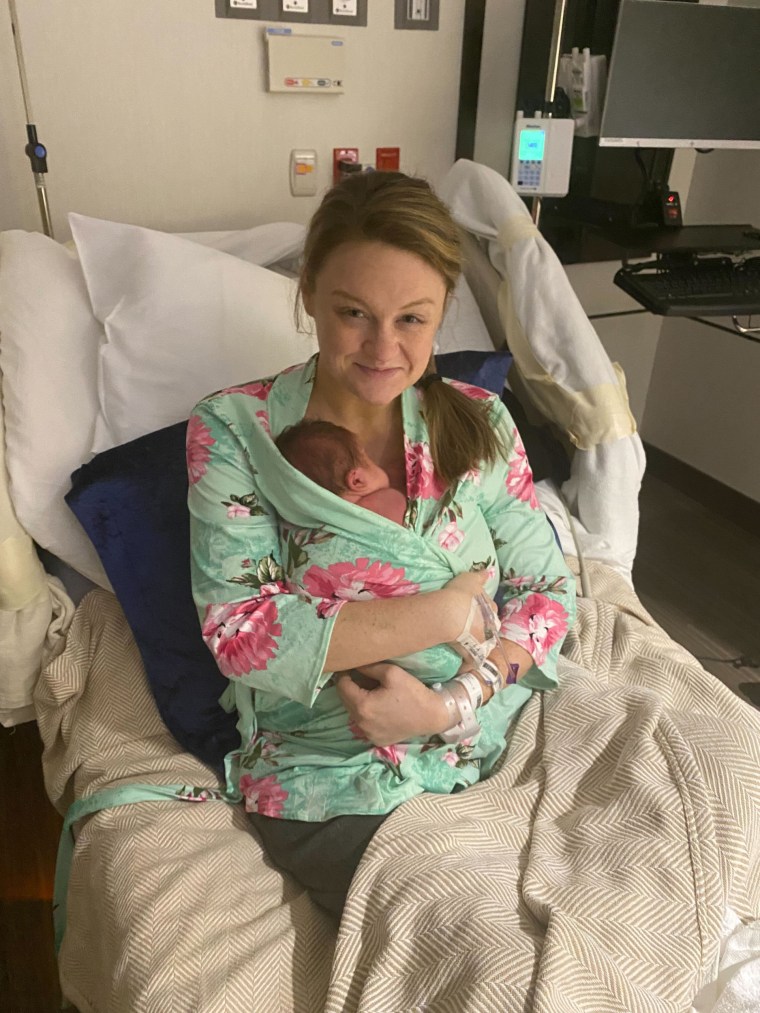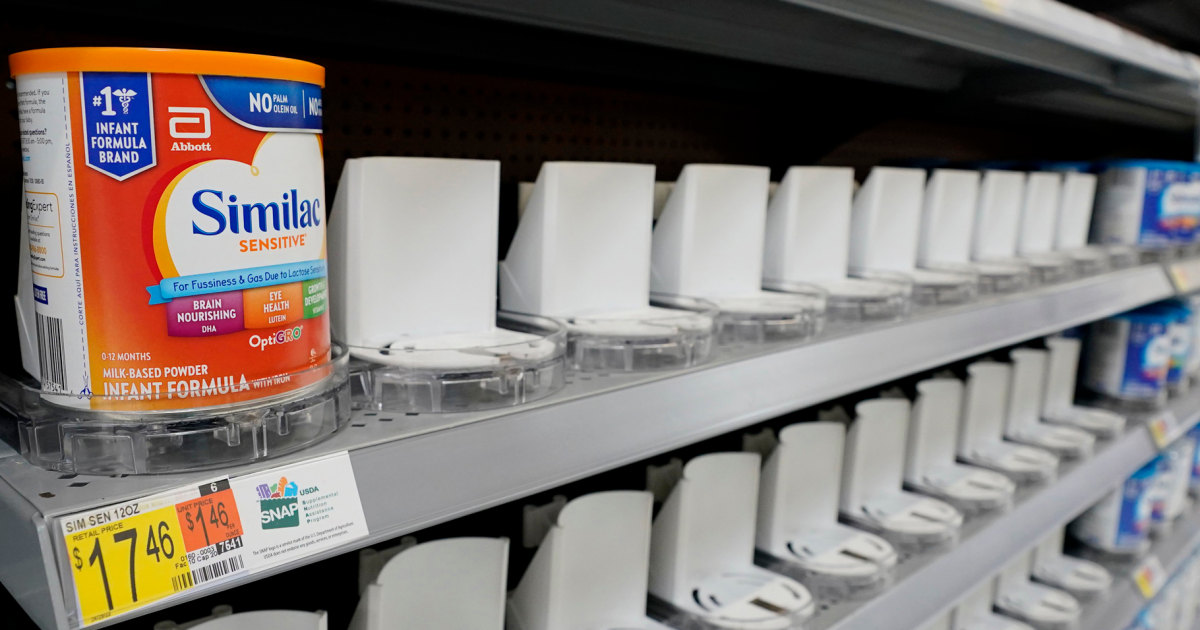Jessica Ibarra was standing in a Target store, staring at bare shelves that should have been lined with baby formula. It was Tuesday, six days after she had given birth to her daughter de ella, and neither she nor her husband de ella had had any luck finding formula during trips to multiple grocery stores near their home de ella in Arlington, Texas.
Another mother, holding her newborn, walked through the formula isolate. She looked at the empty shelves, then looked at Ibarra.
“I can’t find my baby’s formula anywhere,” the mother told Ibarra.
“I can’t either,” replied Ibarra, who cannot breastfeed because she has epilepsy and takes an antiseizure medication that could pose a risk to her infant. Both women started to cry.

A shortage of formula that began in the early days of the pandemic has worsened significantly in recent weeks because of labor shortages and a major product recall, creating panic and anxiety among parents across the country.
With the nationwide out-of-stock percentage at 43 percent for the week ending May 8, according to the retail analysis firm Datasembly, many families are struggling to find formula in stores and online. The delays could last eight to 10 weeks, Abbott Nutrition, the company behind the recall, announced Wednesday.
Many parents have become consumed with finding formula, prompting some to consider taking measures they wouldn’t normally take just so they can feed their babies.
On social media, recipes are circulating for homemade baby formula — something the American Academy of Pediatrics strongly advises against, calling it unsafe. The academy also cautions against diluting formula to make it last longer, which will not meet infants’ nutritional needs.
In Washington, Jason Resendez and his husband, Brian Pierce, have not done anything risky like watering down formula. But they still have felt uneasy. Instead of feeding their 3-month-old the brand of formula they gave him when they first adopted him, they have had to rely on whatever is in stock — and it’s hard to find a brand that is consistently available.

“It feels like we are playing Russian roulette with our baby’s formula, which as new parents, isn’t a good feeling, because we don’t know what he’s allergic to,” Resendez said. “Continuously trying new formulas is really scary.”
In Evans, Georgia, William Zachary and his wife have spent hours driving around in search of formula for their 6-month-old twins, which they use to supplement breast milk.
This week, Zachary planned the most efficient route he could think of for a search during his lunch break, which involved stopping at Walmart, Kroger, Publix and other stores. He came back empty-handed.
Since shortages started ramping up after Abbott Nutrition’s voluntary recall in February, Zachary’s twins have had six different types of formula — whatever the family can get their hands on. Some seem more suited to the twins than others.
“Our oldest son is lactose-intolerant. We think one of the twins is, too — when he doesn’t have sensitive versions, he ends up being fussier,” Zachary said. “It ends up being a bit of an issue, but I’d rather them be fed.”

Most babies consume formula: While 84.1 percent of babies are breastfed at some point in their lives, according to the Centers for Disease Control and Prevention, 46.9 percent of babies are exclusively breastfed at 3 months, and just 25.6 percent at 6 months.
As the formula shortage has become more acute, some in online forums have shamed those who use formula, suggesting they could simply breastfeed instead.
“We don’t have that option,” Resendez said. “It definitely underscores how disconnected some people are from the realities of caregiving and parenting and how that conception is so stereotypical, that if you’re caring for a child, you must be a father and a mother providing that care, when the reality is there are thousands of LGBT couples providing that care.”
Ibarra knows her antiseizure medication is transmitted through her breast milk — but in recent days, she started pumping and freezing breast milk in case she cannot find any formula for her daughter, Aria, and has no other choice. She hopes to not get to that point, and has listed friends and family in other areas to look for formula so she can build a stockpile.
“I’m trying to take care of my daughter and spend time bonding with her, and it’s so tough, because it feels like there’s this cloud hanging over us,” she said.
“It’s heartbreaking. It makes you feel like a failure as a parent, like you’re failing your children because you can’t even feed them,” she added. “It makes you feel helpless.”
